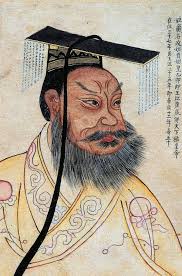
Was Qin Shi Huang Chinese?
Qin Shi Huang (18 February 259 BC – 10 September 210 BC), personal name Zheng, was the founder of the Qin dynasty and the first emperor of a unified China. He was born in Handan, the capital of the Zhao state, and reigned from 247 to 210 BC. But was he Chinese as we understand it today? This requires a closer look at the historical context.
The Concept of "China" During the Qin Dynasty
During Qin Shi Huang's time, the concept of "China" was vastly different from what it is today. The term "China" itself, stemming from the Han dynasty that succeeded Qin, wouldn't have been used. Qin Shi Huang ruled over the Qin state, which through military conquest, eventually unified the other six major states: Han, Zhao, Wei, Chu, Yan, and Qi. These states, although sharing some cultural similarities, had distinct identities, languages, and customs.
Qin Shi Huang's Heritage and Identity
Qin Shi Huang belonged to the Ying clan of the Qin state. While the Qin did engage in cultural exchange and assimilation with neighboring states, they also retained unique practices and traditions. As such, Qin Shi Huang's identity would have been primarily linked to his state of Qin, rather than a pan-Chinese identity that didn't exist yet.
The Creation of a Unified Identity
Qin Shi Huang's unification project, however, laid the groundwork for a unified Chinese identity. His policies of standardizing weights and measures, currency, writing system, and legal codes facilitated communication and integration across the former states. He also connected existing walls to form an early version of the Great Wall, a monumental symbol of unity and defense against external threats.
Conclusion: A Complex Legacy
To definitively label Qin Shi Huang as "Chinese" in the modern sense would be anachronistic. He saw himself as the ruler of Qin, who conquered and unified the other warring states. However, his ambition to create a centralized and unified empire, coupled with his standardization policies, undeniably paved the way for the development of a Chinese national identity in the centuries that followed. He is therefore considered a pivotal figure in Chinese history, even if the concept of "China" during his time differed significantly from our contemporary understanding.
Q&A
Q: Did Qin Shi Huang identify as Chinese?
A: During Qin Shi Huang’s time, the concept of "China" as we know it did not exist. He would have identified primarily with his state of Qin.
Q: What were Qin Shi Huang’s contributions to Chinese history?
A: Qin Shi Huang unified China for the first time, standardized various aspects of life, and implemented policies that fostered a sense of unity, laying the foundation for a Chinese national identity.
Q: Why is Qin Shi Huang considered a significant figure?
A: Qin Shi Huang's unification of China and his subsequent reforms had a profound and lasting impact on the course of Chinese history, shaping its culture, politics, and society for centuries to come.